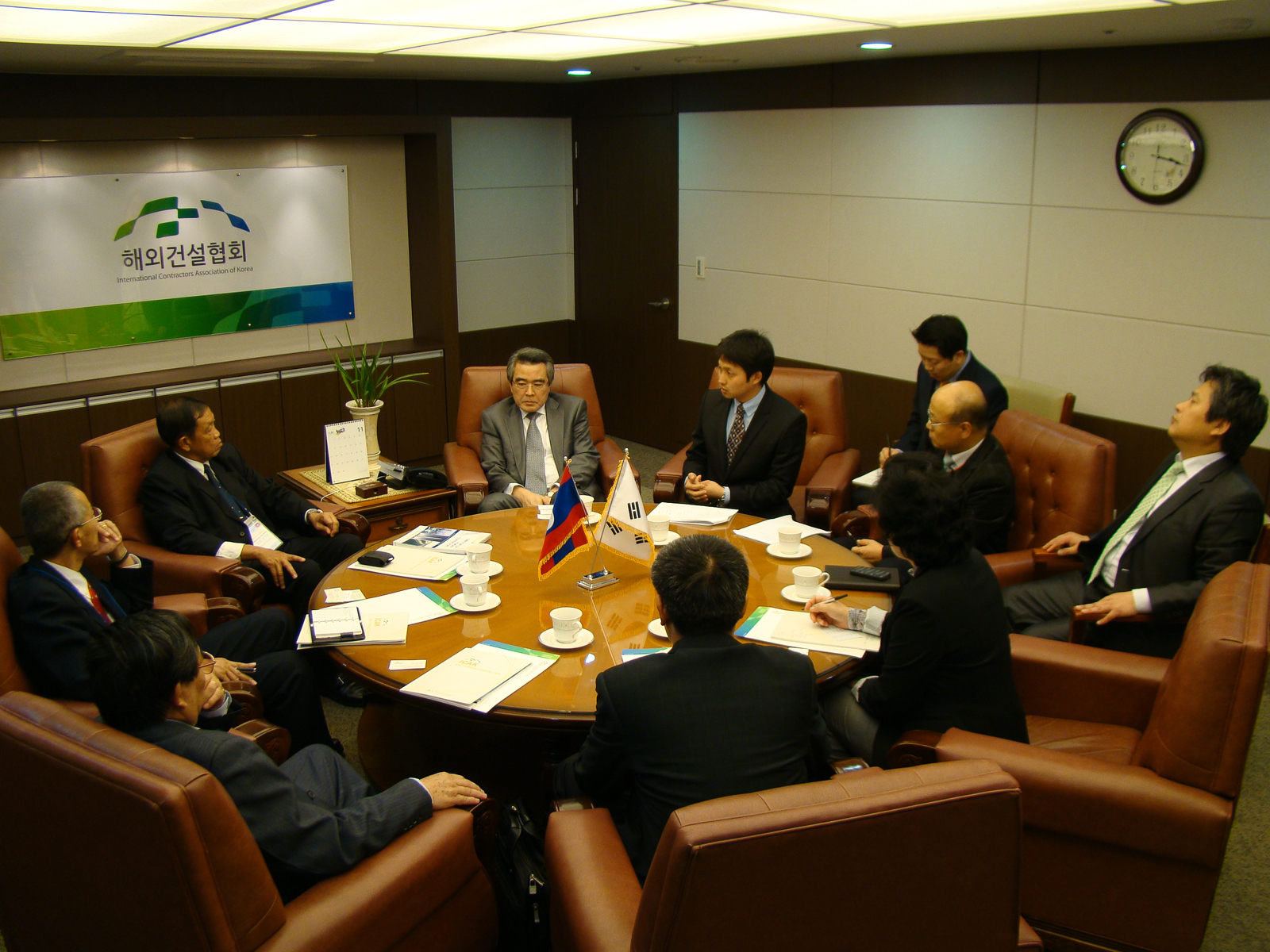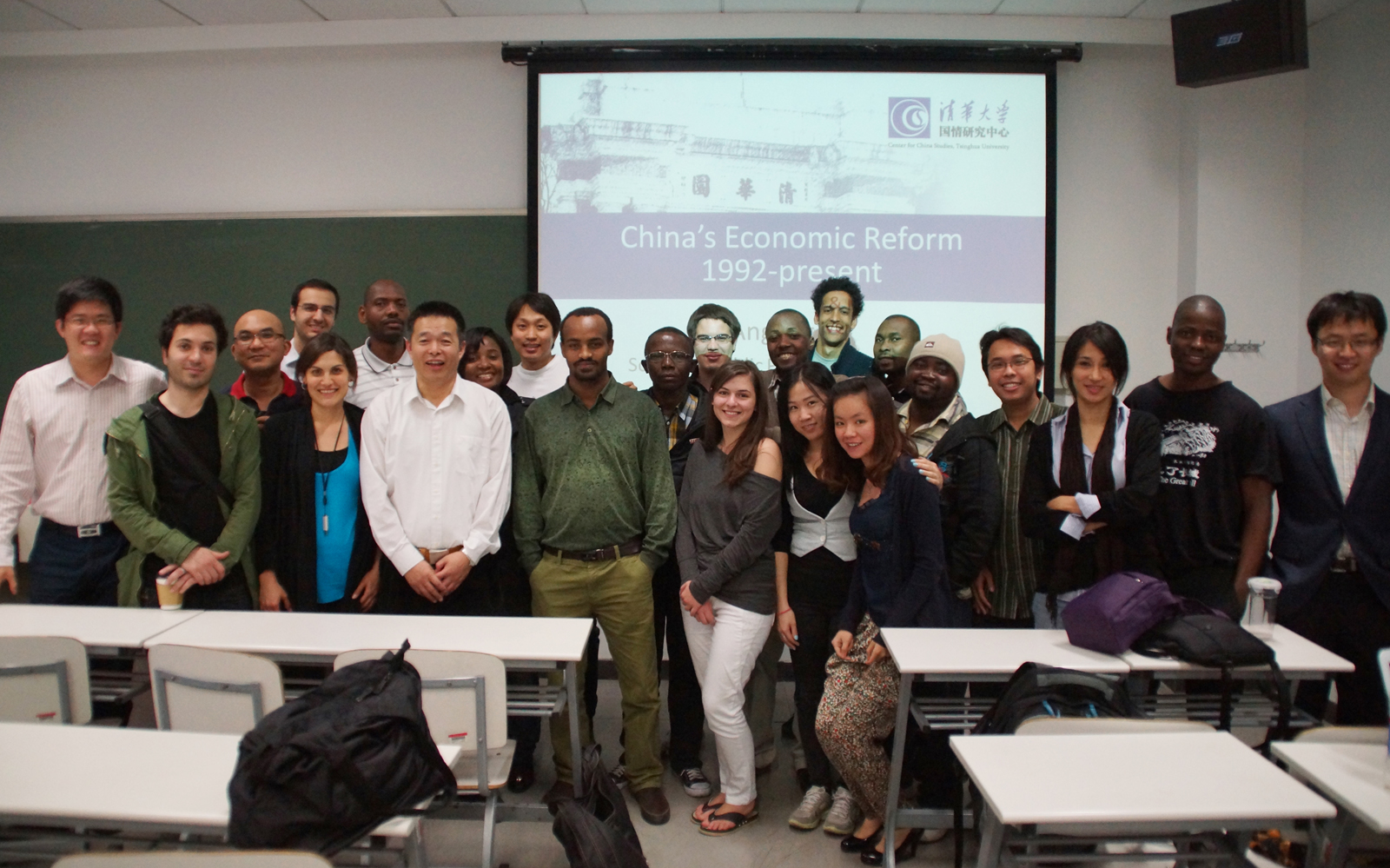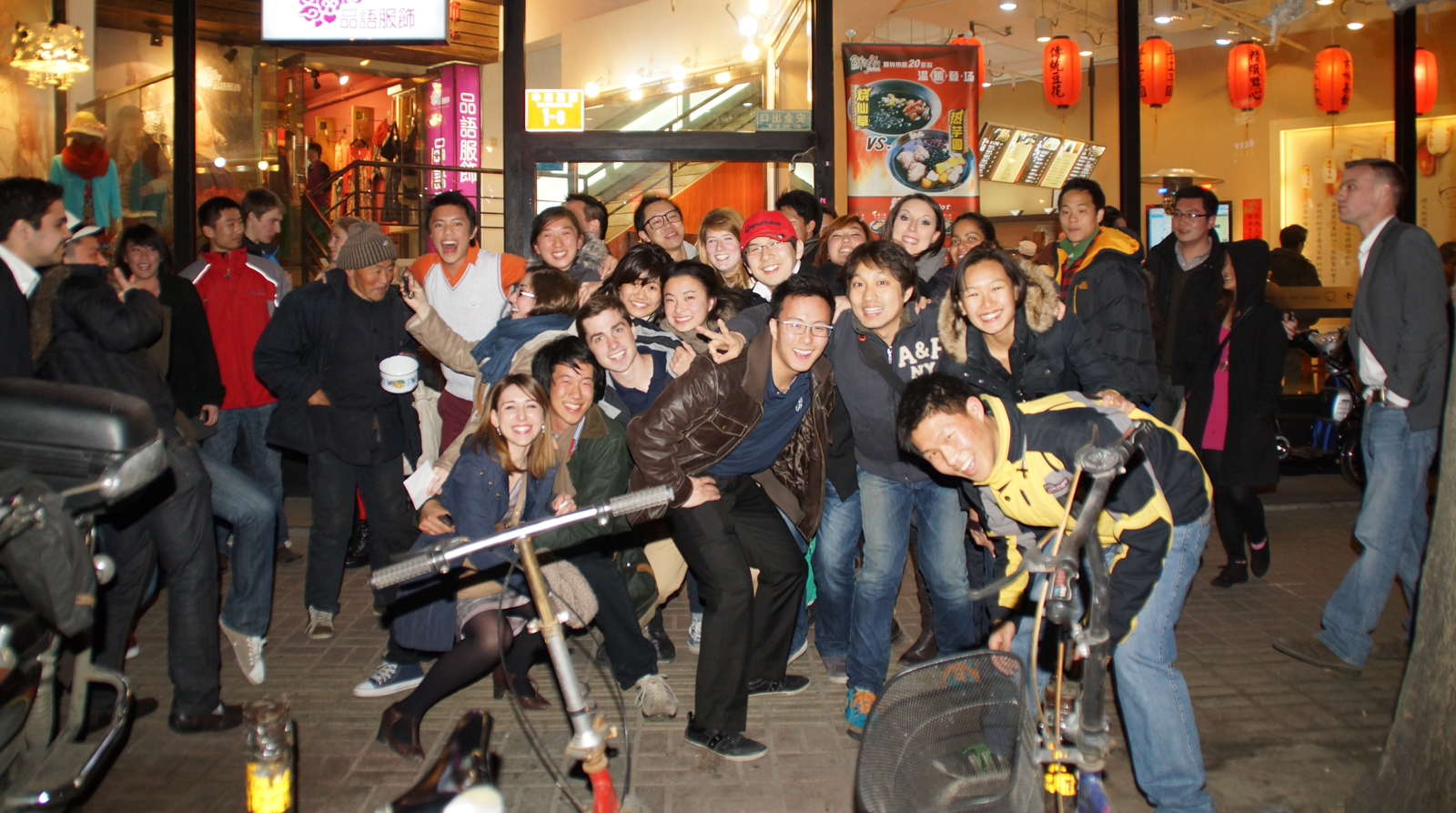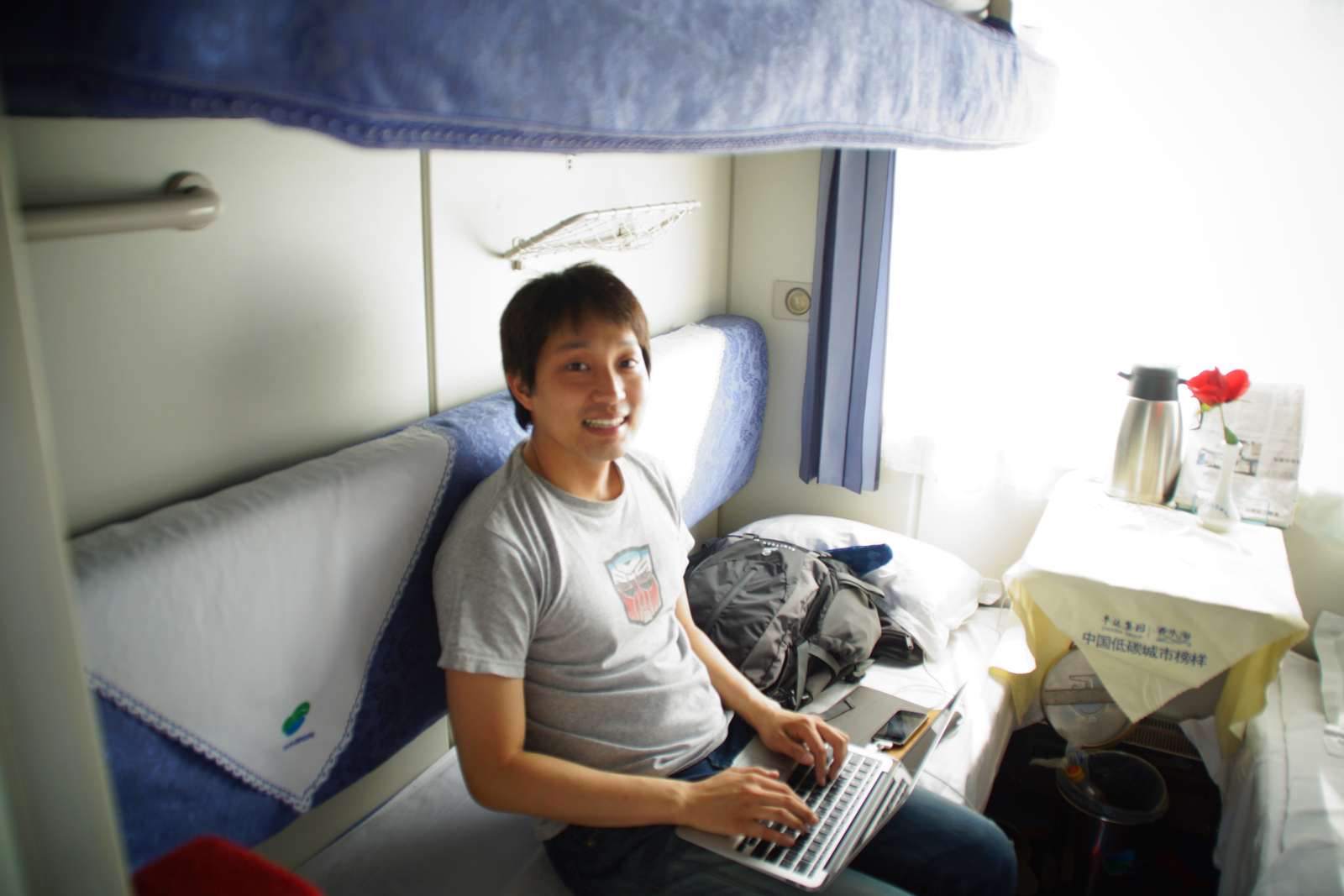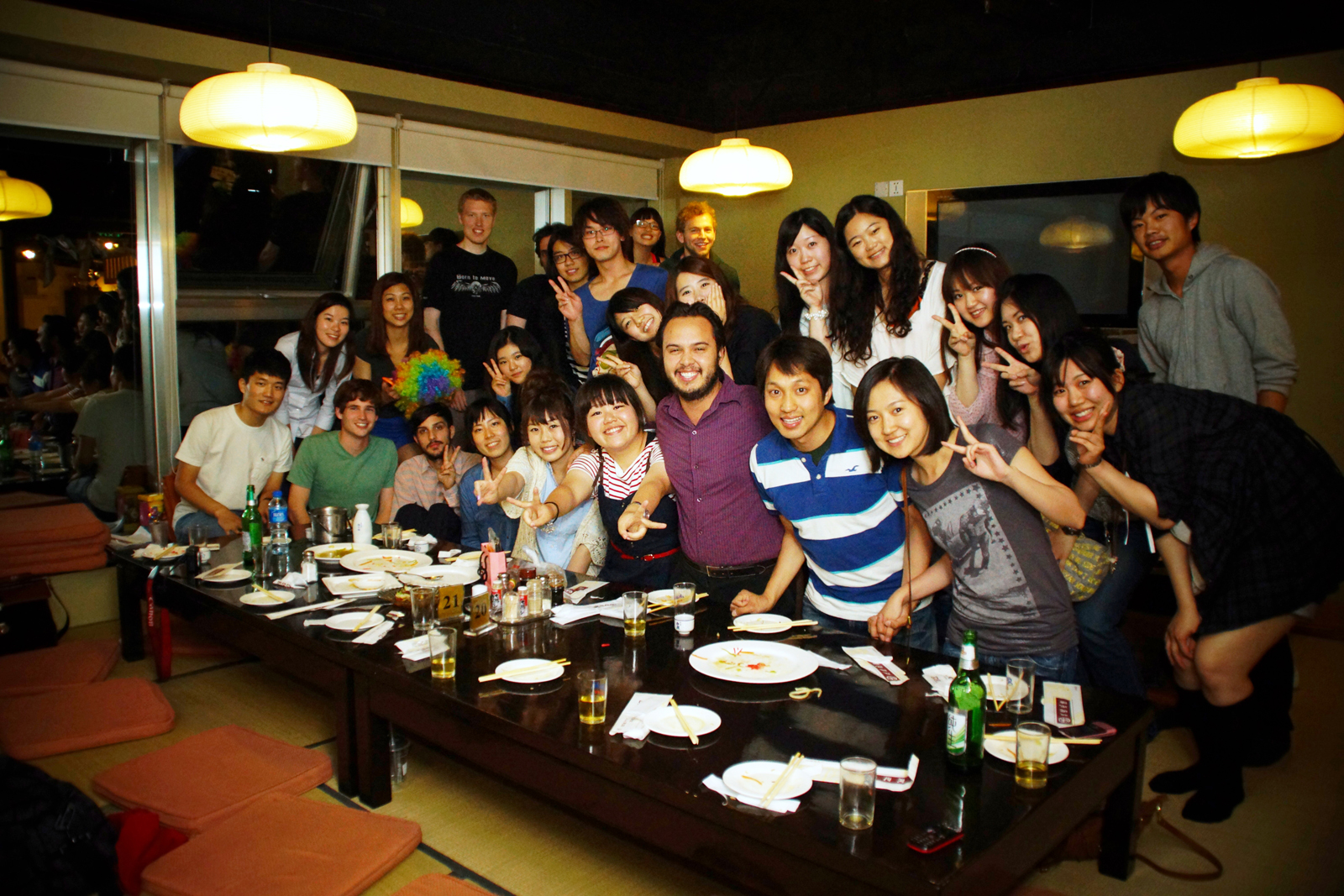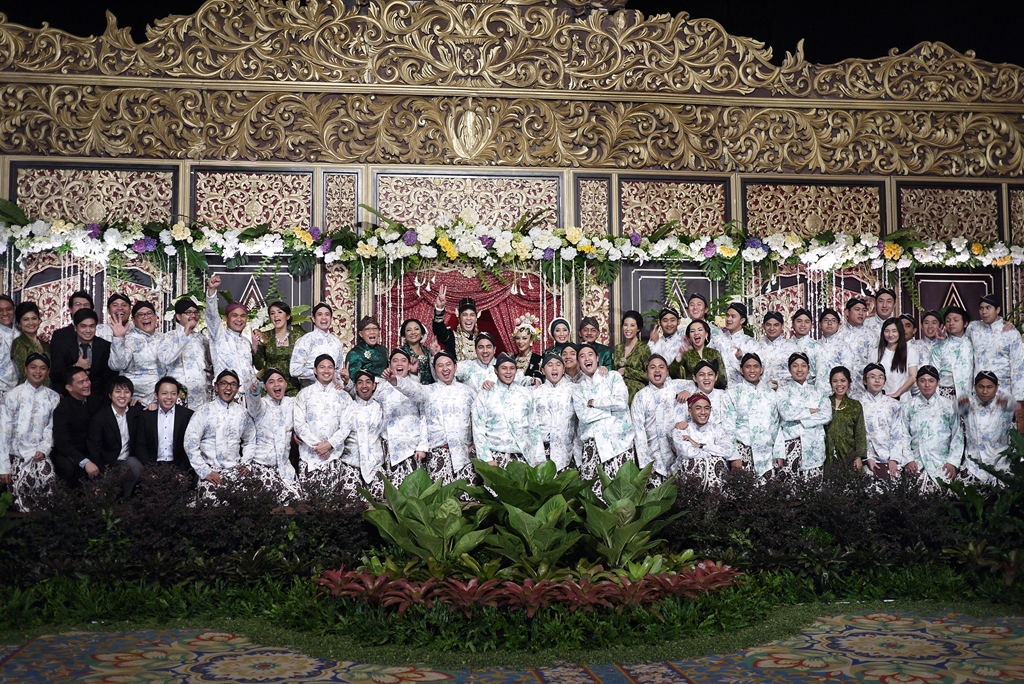2014.06.09
Returned Exchange Student Shares His CAMPUS Asia Experience
Former CAMPUS Asia Double Degree exchange student Mr. Kyun Heo from KDI School, South Korea, shares his experiences and perspectives at GRIPS and CAMPUS Asia program on Korean CAMPUS Asia website.
The original Korean version is here.
Turning point of my life: CAMPUS Asia
(Essay of CAMPUS Asia program candidate)
While I was attending KDI School (KDIS) as a part-time student in December 2011, I learned that KDIS was chosen as one of 10 CAMPUS consortiums. Immediately, even before KDIS made an official announcement, I contacted the school office, and prepared more firmly. What I had in my mind was to resign my job. Despite being considered as one God’s jobs, providing a relatively high salary yet demanding a low workload, I thought that it was only a short-term gain. In my view, joining the CAMPUS Asia Program would be more advantageous for my long-term goals. Therefore, I had no hesitation at all. I believed that CAMPUS Asia was a good opportunity to study Korea’s, Japan’s, and China’s public policies more deeply, and it will help me to go higher in my long-term career path.
What was such attractive point of this program for me? You can find the answer from the common unique specialty of KDIS, Tsinghua University School of Public Policy and Management (Tsinghua SPPM) and National Graduate Institute for Policy Studies (GRIPS). These three schools are probably not well known to those outside the public policy field, but they are very well recognized in public policy and development policy fields. In addition, for all three schools, more than half of the students are government officers from developing countries, providing a good opportunity to learn about other countries’ policies, not just those from Korea, Japan, and China. Since my long-term goal is pursuing a career in the field of Official Development Assistance (ODA), these two factors are the perfect combination for me. Moreover, the experience of living in three countries will help me with my research of “Examining Overseas Construction-Related Government Policies: China, Japan and Korea”.
The first candidate knocks the door of CAMPUS Asia program
14 February 2012 marked the beginning of the first-ever semester of the CAMPUS Asia program. I started confidently, knowing that I was the one and only CAMPUS Asia program candidate. I traveled to Beijing, China, and attended Tsinghua SPPM, majoring in Master of International Development of Public Administration (MID) for one semester. Then, on 1 October 2012, I arrived in Tokyo, Japan to attend GRIPS for one year. With this schedule, by August 2013 I will have completed school in three countries and earned two Master’s degrees (KDIS and GRIPS). If I always keep in mind that my goal is to become a professional in the ODA field, I believe I will have the drive to tackle any challenges and become closer to the future that I have in mind.
Stand in the middle of the history
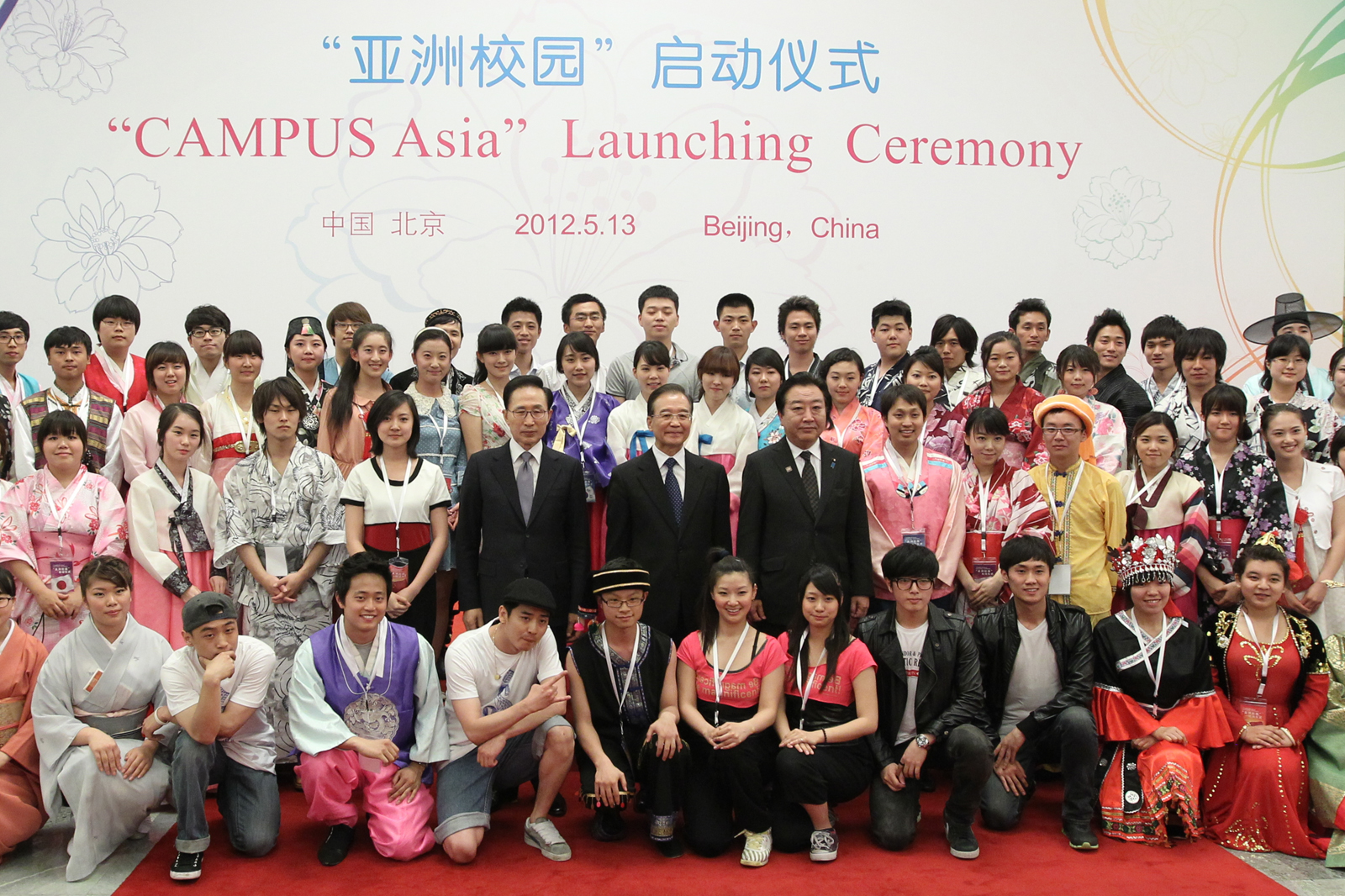
On 13 May 2013, there was a joint official launching ceremony of CAMPUS Asia program by three countries at Great Hall of the People in Beijing. The Heads of States of Korea, Japan, and China attended. As the first and only CAMPUS Asia program candidate, I received the honor of meeting with those leaders. I was impressed and humbled when my president, Lee Myung-bak, directly encouraged me: “Since you are the first candidate of this program, you must study harder to become a leader who can lead the cooperation among three countries by this experience.” I was very proud of Korea since we are the leading country for our three countries’ education cooperation. President Lee reminded me that I must try hard not only to achieve my personal goals, but also to be a good representative of Korea in the CAMPUS Asia program. Wherever I visit in China and Japan, I receive the opportunity to take pictures with leaders and high-ranking officers, and I always keep in mind that I am not just a ‘student’ or a ‘program candidate’, but I am also a ‘personal diplomat’ for my country, Korea.
Taking classes with public officers from 62 countries
The three schools of the CAMPUS Asia consortium that I have attended all have a large international student body, mostly government officers from many developing countries from around the world. When I was attending KDIS in Korea, more than half of the students were promising and outstanding government officers from developing countries. At that time, I was still working as an overseas construction market researcher for International Contractors Association of Korea (ICAK) under Ministry of Land, Transportation and Maritime Affairs (MLTM), so I found the interaction with my international friends engaging and beneficial. If I compare three schools, KDIS has the most diverse international student body; Tsinghua SPPM has mostly African officers; GRIPS’ students are mostly from Southeast Asia. When I experienced this diverse student bodies firsthand, it was very interesting because up until that point I had only read about the differences foreign policy among three countries.
To me, the main difference of the three schools is how they approach “Economic development policy”. We, Korea, are mixing Western-oriented general economic development and our own economic development experience. China is mainly advocating their socialism-oriented Chinese system and promoting their economic development policy. Japan is supporting other developed countries’ mainstream economics (mostly similar to Western approaches), and also introducing the history of how they provided assistance to developing countries so far.
I believe why it is not difficult to study the difference between these three countries because CAMPUS Asia allows me to live in those places, experience many activities, and learn diverse points of views by the local and international students. In this sense, CAMPUS Asia program gives me the opportunity to be able to study three countries comprehensively. To me, this is CAMPUS Asia’s strong point and is what sets it apart from other exchange programs.
China, the place where whole world is gathering
The one semester in Tsinghua University in Beijing was short but it was also a very memorable experience for me. One of the most impressive facts is that since Tsinghua is ranked first in China, many smart students from all over the world are gathered there. Perhaps they felt the same way as me, that China is such a growing and promising country, and also the issues related China will be more focused on by other countries. When I am talking about my CAMPUS Asia program with European students who I have meet in Tsinghua, they mentioned that they are from the “Erasmus Student Network”, the European Union’s equivalent of CAMPUS Asia. It got me thinking that, through this CAMPUS Asia program, someday we, Korea, China and Japan, could be like Europeans and interact and understand more so we can cooperate not only just economically but also history, policy, science, art and others as well sincerely then we can grow further so we can be the center of the world together.
We have several traffic jams on the way to visit our hometowns on national holidays like Chuseok (추석) or Seolnal (설날). In China, however, you may have heard about how much time could be spent to travel during the national holidays; sometimes it takes up to 15 hours to 45 hours by normal bus and train. During Labor festival (劳动节), I went to Chengdu (成都) with schoolmates. Since we wanted to save transpiration costs, we took normal slow train instead of taking airplane. Even though I have read a whole book, watched several movies, listened many songs, the train was still running so I had a little hard time. To be honestly, I suffered quite a lot, since I did not know how to speak Chinese language when I was staying in China. Especially during this trip, I was worried about taking the train alone to meet my friends in Chengdu. Luckily, in the next seat was an old lady who was so kind and helped me a lot. So, fortunately, I finished my 30 hours train journey finished safely.
(I will explain you more specifically in another section below, if you are concerned about applying for the CAMPUS Asia program, I strongly recommend you to learn at least conversation level of Chinese and Japanese then you can have better and higher level of life in China and Japan)
Have local friends, not shallow relationship but deep and meaningful ones
One of the weak points of the CAMPUS Asia program is that there is limited interaction with local students in the partner school. All three schools offer all classes in English language, but the local students’ participation rate is very low. Except for KDIS, almost every local student attends the domestic program, not the international one. As a result, we need to put our effort to interact with local students, such as through participating in additional activities, and not just only originally providing classes by school.
In my case, when I was in China, I was involved in the Chinese-International Club in Tsinghua University. In Japan, I was the program representative for the one-year Master’s Program in Public Policy (MP1) in GRIPS, which provided me a chance to interact with local Japanese students. Being involved in extra-curricular activities is important and gives an opportunity to make local friends. One of the most important points that must not be forgotten is that the relationship should not last just when you are in that country. The friendship that we make, both with local and international students, should be maintained and sustained. On this issue, I want to point out the situation in China. As you probably know, it’s hard to be connected through social network services like Facebook or Twitter. Some people may think that as a result, it would be difficult to maintain the friendship once you leave China. But if we use their local SNS such as Renren, or QQ, we can maintain well our relationship with no problem. It is up to us to try to make the friendship and relationship last.
In addition, we should maximize the advantage from geographical element of the three schools. All are located in capital cities (Beijing, Tokyo, and Seoul). All are internationally famous metropolitan areas, each with its own unique characteristics, highlights, and beautiful sights. I suggest wholeheartedly that you shouldn’t just stay in school, but go out to explore the city (or even the country, like I did) and enjoy the experience of being there. Don’t only just learn, but live and laugh, too.
Study local languages in advance
As I have implied in the previous paragraphs, I started this program knowing only Korean and English. Fortunately, both Chinese and Japanese are not hard one to learn for Koreans. In my case, while I was in China, all my courses were in English. Nonetheless, I was able to learn conversational Mandarin through daily situations and interactions with locals; now I can understand about 70% of conversations and engage in conversation. The same is happening for me with the Japanese language. It got me thinking if I had gone to Japan and China with some basic knowledge (as I have now) I could perhaps have learned more, not only about language but also the local people and lifestyles. Looking back, I should have learned the local languages in advance. The first few sentences in local languages are very effective to break the ice in conversation in my experience.
Travel as much as you can
Before I joined CAMPUS Asia program, my job also allowed me to travel. While I could visit many places, however, it was only for a short period of time. On a business trip, you get more chances than a resident. Therefore, when I got the opportunity to reside in China, I tried hard to visit local tourist attractions and museums, almost every weekend and visited many places as well. There were two big holiday periods in China, so I went to Chengdu and Xian, famous for Mausoleum of the First Qin Emperor (秦始皇陵). For me, I think learning in the classroom has its limits. It is when we travel, see the sights, interact with people, studying customs and learning new ideas that we truly can appreciate the experience of being in another country.
My network covers entire world
It wasn’t easy to start new life after resigning my work, especially as I have already experienced life as an exchange student in the United States, so I thought long and hard about whether I should apply for CAMPUS Asia program or not. However, CAMPUS Asia program is significantly different from other common exchange student programs, because there is the clear goal to study in three countries. Also, there are very strong supports from three governments and schools such as diverse administrative costs, living expenses, and airfare. Overall, CAMPUS Asia is a comprehensive program.
I would mention the best pro is strong connectivity. CAMPUS Asia program is not just only doing bilateral exchange, but in three countries for two master degrees. Therefore, the connectivity among CAMPUS Asia program students is very strong. I have experienced exchange student program in USA when I was an undergraduate student, so I have viewed life as an exchange student from both sides. I think CAMPUS Asia is different because it is not just about studying together, but about experiences in three different countries.
Especially, KDIS-Tsinghua SPPM-GRIPS are special schools for government officers from many countries. In this connection, I discovered that an Ethiopian friend who works for his government in KDIS knows my Ethiopian friend in Tsinghua SPPM; it’s quite impressive to learn that these three schools have managed to connect not only Koreans, Japanese, and Chinese, but also others from around the world. CAMPUS Asia provides me an opportunity for networking and meeting friends, and the three schools also have students who know each other. Viewed this way, the KDIS-Tsinghua SPPM-GRIPS triangle is a network of friends from around the world.
Be a long live program
Even though we are all in the same program, the supporting conditions are quite different in each country. I hope that can be solved in near future. One issue is airfare; so far, only Japanese students are receiving support from their government. Another issue is tuition fee. Japanese and Chinese students have to pay for additional semesters abroad for CAMPUS Asia program. On the other hand, Korean students are only paying for one year at KDIS; our education abroad comes in the form of scholarship. I personally believe that Japanese and Chinese student hesitate to apply for CAMPUS Asia program due this kind of restriction. Last, but not least, is the issue of credit guidelines. The three schools have similar curricula so the contents of classes are sometimes duplicated, but still there is no clear guideline for waiving credits. Thus, we have to fulfill each school’s requirement, which, in my experience, has led to quite a number of unnecessary and duplicated courses. Probably there are other concerns and in the future, the CAMPUS Asia guidelines will be revised. Finding those facts are not bad at all, since this CAMPUS Asia can be better and improved program through these revising procedures.
The one step to become a global leader
My future goal is to become a specialist in the ODA field; in particular, I would like to work for the Asia Development Bank (ADB). I think I am on the right track towards my goal. Even though there were many discouraging factors at the beginning of the CAMPUS Asia program, like worries that it would be difficult to find a job in the future, or even about starting a family. However, I don’t have any regrets and have had great experiences so far. When I see my friends who have stable jobs and take care of their family, I ask myself again if I am all right with living differently from others. But still I believe that I am young enough to pursue my dreams, so I would invest my life more to studying. Even though sometimes I may have rough days, I imagine myself standing confidently in my field later. Also, there are many friends that I have met, whom I can rely on, study together, and pursue the same dreams in my schools. I am able to move forward to a brighter future step by step. In this my life’s journey, and the CAMPUS Asia program is walking with me as a strong supporter.
Introduction myself (Kyun Heo)
| Feb 2011~Dec 2013 | Graduated KDI School of Public Policy and Management |
| Jan 2012 | Selected as the first CAMPUS Asia candidate |
| Feb 2012~June 2012 | Completed one exchange semester in Tsinghua SPPM (清华大学公共管理学院) |
| Oct 2012~Sep 2013 | Graduated One-Year Master’s Program of Public Policy at National Graduate Institute for Policy Studies (政策研究大学院大学, GRIPS) |








